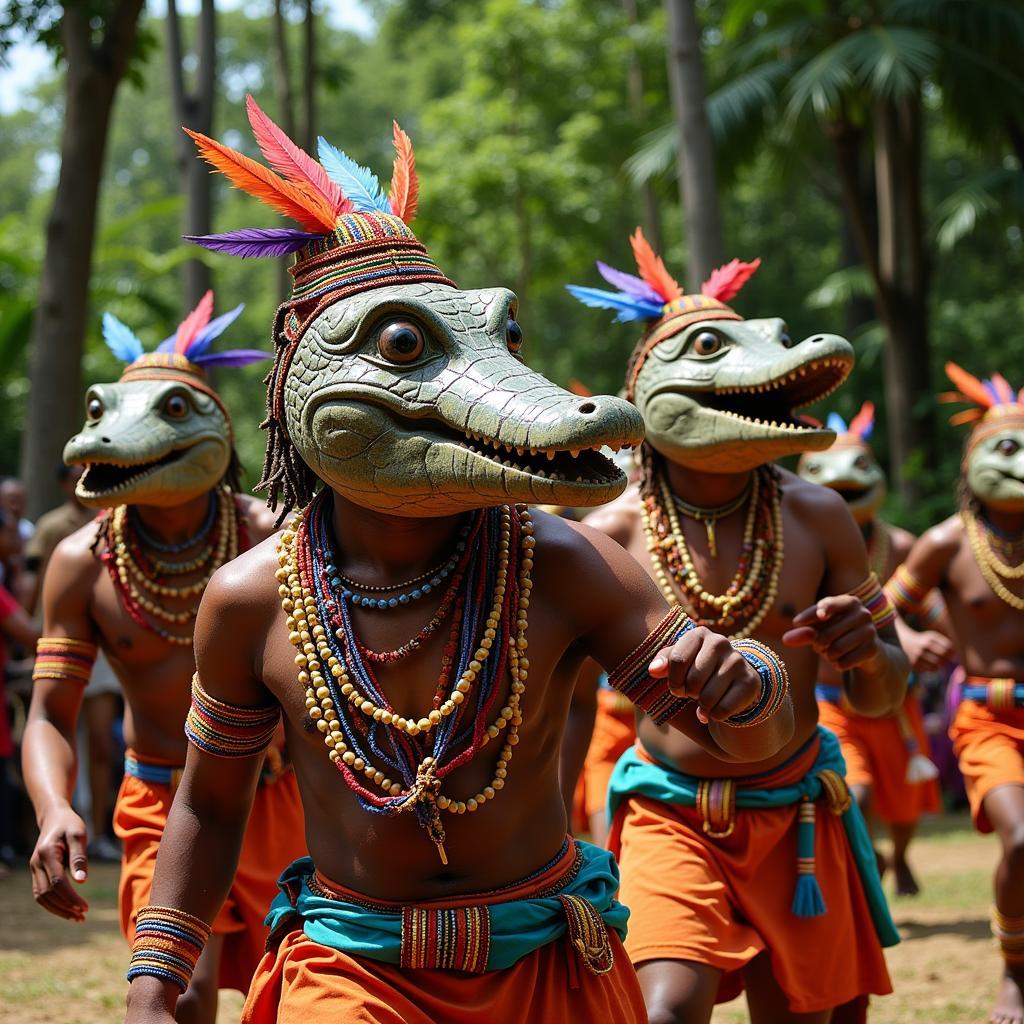What Are African Bush Elephant Teeth Called?
African bush elephant teeth, specifically their incisors, are called tusks. These magnificent ivory structures are not just prominent features but play a vital role in the elephant’s life.
The Significance of African Bush Elephant Tusks
While all elephants possess tusks, those of the African bush elephant are particularly impressive, often reaching enormous sizes. These elongated teeth are essentially modified incisors that protrude from their upper jaw and continue to grow throughout their lifetime.
Tusks are incredibly versatile tools, enabling elephants to perform a range of tasks crucial for their survival and social interactions. For instance, they use their tusks for:
- Digging: Unearthing water sources and essential minerals from the ground.
- Stripping Bark: Removing bark from trees for sustenance.
- Defense: Protecting themselves and their young from predators like lions or defending their territory from rivals.
- Display: Showcasing dominance and attracting mates.
The Composition of Elephant Tusks
What makes elephant tusks so unique is their composition. Unlike human teeth covered in enamel, elephant tusks are primarily made of dentin, a hard, dense bony tissue. This dentin is interwoven with thousands of tiny nerve endings, making the tusks incredibly sensitive. This sensitivity allows elephants to detect vibrations in the ground, locate water, and even carefully handle delicate objects.
Threats to African Bush Elephant Tusks
Tragically, the very feature that makes these creatures so extraordinary has also become a threat to their survival. The ivory from elephant tusks is highly valued, leading to a rampant illegal ivory trade that has decimated elephant populations. Poachers often target elephants specifically for their tusks, leaving a trail of devastation in their wake.
Conservation Efforts
Recognizing the urgency of the situation, numerous organizations and governments worldwide are working tirelessly to protect African bush elephants and combat the illegal ivory trade. These efforts include:
- Strengthening anti-poaching patrols: Increasing the presence of rangers in elephant habitats to deter poaching activities.
- Implementing stricter laws and regulations: Enacting and enforcing legislation that prohibits the trade of ivory products.
- Raising awareness: Educating the public about the devastating consequences of the ivory trade and promoting sustainable alternatives.
The Future of African Bush Elephants
The future of these magnificent creatures hinges on our collective action. By supporting conservation efforts, advocating for stricter regulations, and making conscious consumer choices, we can contribute to the preservation of African bush elephants and ensure that future generations inherit a world where these gentle giants continue to roam free.
FAQs about African Bush Elephant Tusks
1. Do all African bush elephants have tusks?
While most African bush elephants possess tusks, there are some that are naturally tuskless. This is due to a genetic trait that prevents tusk development.
2. How much do African bush elephant tusks weigh?
The weight of tusks varies greatly depending on factors like age, sex, and genetics. However, large male African bush elephants can have tusks weighing over 200 pounds each.
Looking for more fascinating facts about African animals?
Discover more about the diverse wildlife of Africa, including the fascinating African freshwater fishes. Learn about the unique adaptations and behaviors of these aquatic creatures that call Africa’s rivers and lakes their home.
For a broader understanding of African animals and their habitats, delve into our comprehensive guide on African animals and their habitats ks1.
Contact us today for all your African travel needs. Our team is available 24/7 to assist you. Call us at +255768904061, email us at [email protected], or visit our office in Mbarali DC Mawindi, Kangaga, Tanzania.

